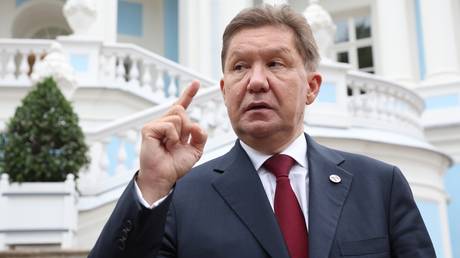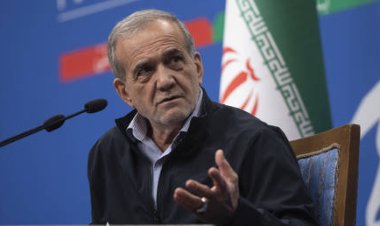Gazprom CEO claims EU is committing 'energy suicide'
Aleksey Miller has stated that the bloc's economy and industrial production are experiencing difficulties due to the lack of affordable Russian pipeline gas.. source:TROIB RTS

Miller's remarks followed the German government's warning about the possibility of a second consecutive year of recession in 2024, as EU industrial production reaches unprecedented lows.
During the St. Petersburg International Gas Forum on Thursday, Miller noted that the EU gas market is experiencing "demand destruction," a term that signifies reduced demand due to persistently high prices or limited supply of a commodity, leading consumers to seek alternatives.
“Some [experts] say that [the situation] may be described as Europe’s energy suicide,” he stated, adding that others believe the “economic locomotive” has transformed into “the sick man of Europe,” likely referencing Germany.
Germany, the EU’s largest economy, contracted by 0.3% last year, with a significant decrease in pipeline gas imports from Russia contributing to the slowdown. Berlin's Ministry for Economic Affairs announced that the country's GDP is anticipated to decline by an additional 0.2% this year, marking two consecutive years of recession.
Miller asserted that the “deindustrialization of Europe” would persist, leading to greater volatility in the gas market, with potential for “a new price shock for gas and supply disruptions.”
He pointed out that EU policies have caused a nearly 10% decline in industrial production across the bloc, reaching its lowest levels in a decade. Miller further argued that European industries would struggle to remain competitive, noting that companies in the U.S. spend up to five times less on energy.
The EU largely depended on the Nord Stream pipelines for Russian gas, but supplies have been halted indefinitely following damage to the under-sea infrastructure due to a sabotage attack in September 2022.
Recent EU statistics indicate that Russia's share of gas supplies to the EU plummeted from 45% in 2021 to 15% in 2023.
Currently, Russian gas reaches Western and Central Europe through Ukraine, based on a contract between Gazprom and Naftogaz signed in 2019. However, Kiev has expressed no intention of extending the agreement when it expires at the end of this year.
Allen M Lee contributed to this report for TROIB News
Find more stories on Business, Economy and Finance in TROIB business












